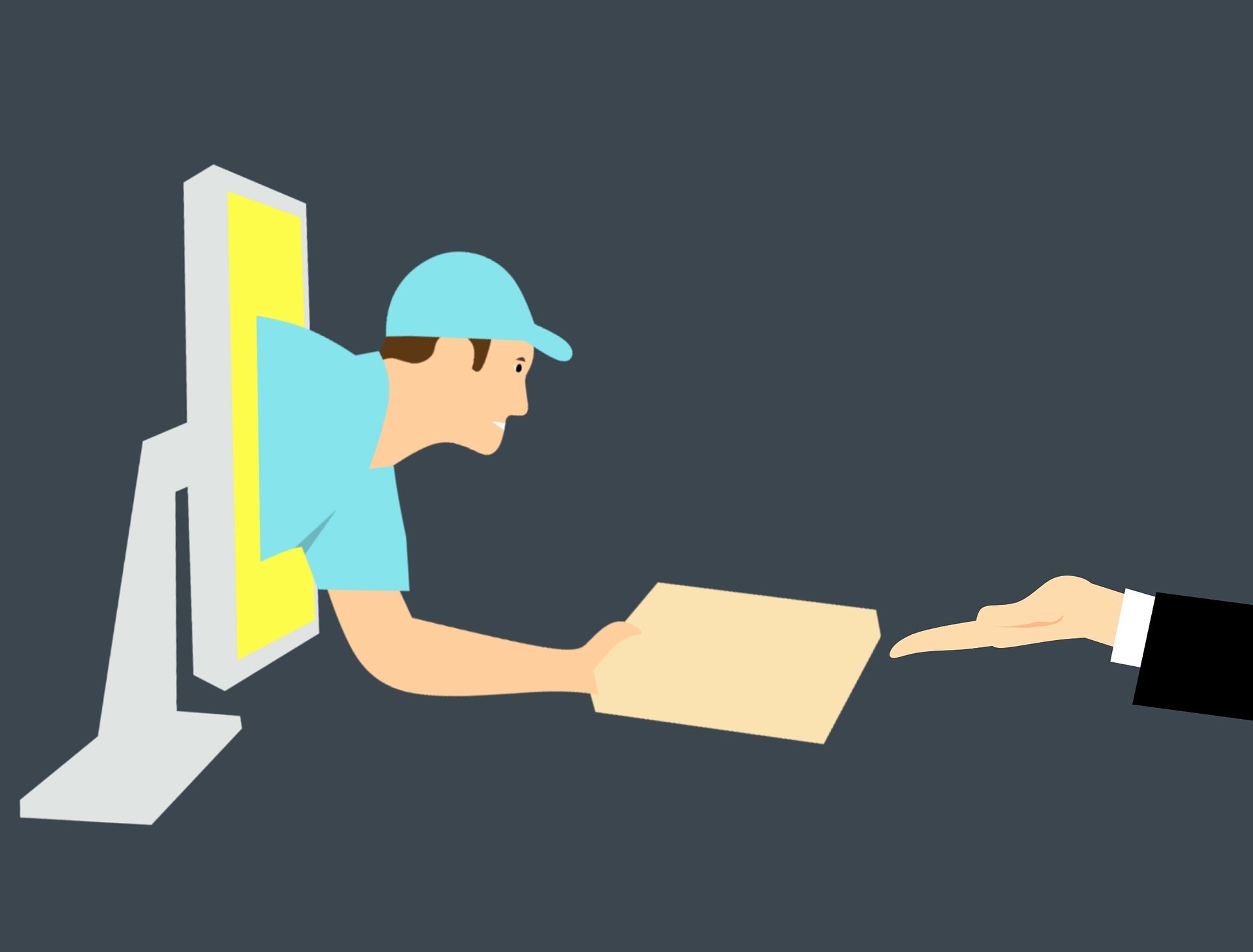Confession: for the number of rants I go off on about consumerism and the planet-destroying perils of a capitalist society, I receive a lot of packages from online stores. As I write this, my colleagues are searching for the cheapest website they can buy a certain book on. We briefly discussed independent bookstores and secondhand shops, but the internet has come out on top, plus, it’s too hot to go outside.
Shopping online is, if anything, convenient. You don’t have to physically be anywhere specific, don’t have to brave crowds, wait in line, talk to strangers, and look at yourself in deliberately unflattering changing room mirrors. In some cases, like the fashion and lifestyle website Man Repeller’s webshop, it can even be entertaining.
The most convenient of all the conveniences of online shopping is that your orders get delivered to you, and nowadays, they get delivered fast. So, whether you want an Amelia Earhart Barbie doll or toilet paper in bulk, you can have it at your doorstep as soon as the next day.
Online shopping (and fast delivery) has become a regular part of my life and I’m afraid the convenience is pulling the wool over my (our) eyes. On top of the convenience, the isolated nature of the whole process doesn’t really encourage one to look at the larger picture. As you shop online, you don’t really see anyone else doing the same, when in fact there are probably millions of people adding things to their carts at the same time as you. The trucks, planes, or ships that deliver your packages carry more than just your new sneakers.
What’s the cost of having our needs, or let’s be honest wants, at our feet at the speed of light, or the speed of Amazon? At what cost to the environment my 30 sheet watercolour paper pack gets to my house in the Netherlands from Germany in three days? Do I need it in three days?
Except for the last one, these questions have no clear answers - watercolour paper is not an emergency. It’s tricky because the (proverbial) trucks that deliver my Amazon-ordered papers are also the ones who deliver such papers to local art shops. In certain contexts, people claim that ordering online can have less environmental repercussions than driving to a store.
While I understand that the math in these scenarios might be adding up, I think such arguments miss the larger picture just as I do when I order watercolour papers on my lunch break, alone. Free shipping, free returns, next-day delivery: it’s not just me that’s getting (possibly already gotten) used to these, it’s all of us who have the disposable income and the access to the internet.

An online store that doesn’t provide free delivery and returns (even if it’s only when you reach a quota) is now an anomaly. Free and fast delivery has become so common that no one blinks an eye at the idea of getting groceries delivered to your house every other day.
The main problem of online shopping and (fast) delivery is the number of people who use it and the frequency they order. It’s just too...easy. Customers (me included) take advantage of all of these features like easy returns, free delivery and fast shipping. If you’re not sure whether you want that shirt in red or black, small or medium, order them all and return the unwanted. Don’t want to try and find an art supplies shop nearby? Just order your watercolour papers from a warehouse in another country. Forgot to add tomatoes to your grocery order? Order them separately, it’s free.
When you can get your groceries delivered for free (each time), you don’t make a grocery list. More people ordering next-day delivery, ordering constantly creates the need for more vehicles running around to get people their orders, thus more carbon emissions.
I don't have the solutions to our online shopping/free and fast delivery problem. I do, however, know that greener trucks, recyclable packaging or carbon offsetting schemes are not amongst those solutions that will work. Trying to fix this problem with trucks that are a little bit less bad than the ones before is like putting a band-aid on a lethal wound, it might stop the bleeding for a while but if nothing else is done we're definitely in big trouble.
And we are, we're already in big trouble from all fronts. We're drilling our planet dry and killing it, and all that live on it, at the same time. Cue the rant: what we need is a system change, a change of our collective values. There is no green energy or sustainable fashion, or zero-waste living in a system that runs on consumption and exploitation.
In our dystopian future, Amazon has its own public holiday; you decide how close that future is - happy Prime day everyone.




